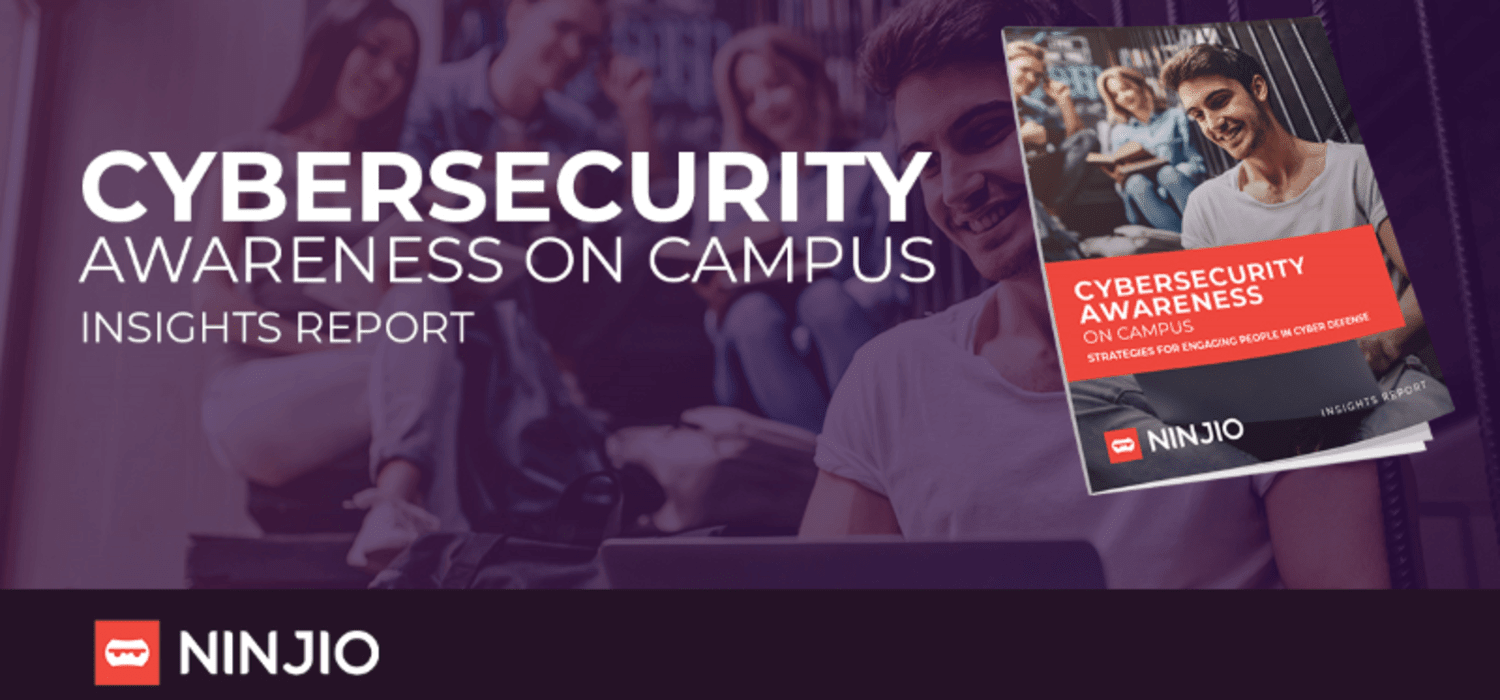
NINJIO, an award-winning cybersecurity awareness training company, has released an in-depth report on cyberthreats to higher education institutions and the unique vulnerabilities confronted by the sector. Universities are high-value targets for cybercriminals because they possess large amounts of extremely sensitive information, such as research data and confidential student records. Meanwhile, the size, complexity, and openness of university networks make the cybersecurity challenges they face even more daunting. The report concludes that training faculty, students, and all university stakeholders to spot cyberthreats, and take necessary action against them, is the only proven and effective solution.
“Higher education institutions are in an extremely precarious position when it comes to cybersecurity,” says Dr. Shaun McAlmont, CEO of NINJIO Cybersecurity Awareness Training. “Beyond the fact that universities are responsible for protecting a massive amount of sensitive data, cybercriminals have an increasing number of access points to exploit. To make matters worse, the evidence suggests that cybersecurity protocols at universities aren’t keeping pace with the threats they face.”
Cyberattacks in higher education are on the rise, and the report takes an in-depth look at these problems and demonstrates how universities can address them with behavior-based, end-to-end cyber awareness solutions. The report also outlines how university administrators and IT teams are struggling to keep pace with evolving cybercriminal tactics. Interconnected digital systems for online instruction, record-keeping, etc. are difficult to secure because millions of students, professors, and researchers use them every day, which means there are millions of opportunities for cybercriminals to capitalize on user error. In fact, over a third of the errors that caused breaches in the education sector in 2022 were due to emails sent to the wrong people or with the wrong attachments; while ransomware accounted for over 30 percent of breaches.
The NINJIO report outlines how universities can build a culture of cybersecurity awareness at every level:
- Earn the attention of learners with highly relevant and engaging cybersecurity awareness training (CSAT) content.
- Personalize that educational content to account for different skill levels, learning styles, and technical backgrounds.
- Incorporate accountability by tracking performance on an individual basis and monitoring learning outcomes rigorously and frequently.
According to a 2022 Sophos report, 64 percent of institutions of higher education suffered ransomware attacks over the preceding year. When a breach occurs, the consequences can follow students for years or even decades: “What an unfair way to start your life,” Dr. McAlmont observes, “your Social Security number is already compromised, a threat that can resurface many years later.”
Considering the weight of this responsibility, now is the time for colleges and universities to place more emphasis on human-based cybersecurity.
Download a complimentary copy of NINJIO’s “Cybersecurity Awareness on Campus” report here.
NINJIO is a cybersecurity awareness training company that provides an extensive library of engaging and personalized educational content designed to make employees unhackable. Each NINJIO episode focuses on a specific attack vector and uses real-world examples to demonstrate how employees can identify and repel cyberattacks in progress. The NINJIO platform uses individual data on each employee’s personality traits, learning styles, and vulnerabilities to help companies drive sustainable behavioral change.
